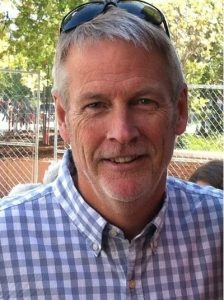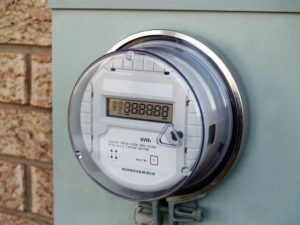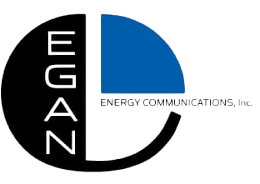 You know a topic has gone mainstream when it finds its way into a parody song by Weird Al Yankovic (left). Weird Al’s video, “Foil,” is a lighthearted take on conspiracy theorists, a small but colorful segment of our population sometimes referred to as people who wear tin-foil hats.
You know a topic has gone mainstream when it finds its way into a parody song by Weird Al Yankovic (left). Weird Al’s video, “Foil,” is a lighthearted take on conspiracy theorists, a small but colorful segment of our population sometimes referred to as people who wear tin-foil hats.
You know who I’m talking about: the tiny segment of the population who see conspiracies everywhere. Black helicopters coming over the ridge. A New World Order led by the United Nations. A global economy run by and for the Tri-Lateral Commission. The Kennedy assassinations. Area 51. Gun control. President Obama’s birthplace.
As utility communicators, we sometimes have to engage with these folks in the context of advanced digital meters. And yes, before people get all worked up, “tin-foil hat people” is a pejorative term, as is its predecessor, the “flat-earth society.” But these are descriptive terms being used by some utility officials, typically behind closed doors, to describe people who fiercely oppose deployment of advanced digital meters.
 So what should utility communicators do about these folks? Ignore them! Keep in mind the bell-shaped curve (right) and focus on the large swath of the public, represented in blue, whose opinion and trust is up for grabs. They are not epidemiologists or engineers. They’re everyday people who just want to know their families won’t be threatened by the meters.
So what should utility communicators do about these folks? Ignore them! Keep in mind the bell-shaped curve (right) and focus on the large swath of the public, represented in blue, whose opinion and trust is up for grabs. They are not epidemiologists or engineers. They’re everyday people who just want to know their families won’t be threatened by the meters.
At the opposite edges of the bell-shaped curve are those people who have strong feelings, pro and con, about you, your product, your trustworthiness and the safety of digital meters. It makes good sense to stay connected with those who have strong positive views about your utility. But trying to change the minds of disbelievers is an exercise in futility. In opposing digital meters, they will always have another reason for their opposition. They cannot be satisfied, so don’t waste your time and effort.
Based on the industry’s experience with advanced digital meters, this tiny fraction of the population — well under 1% in most cases — typically hijacks public hearings and open houses by loudly proclaiming these meters cause cancer, lower home values, cause fires, enable government eavesdropping and any other number of bad things – with little or no solid evidence to back up their claims.
Instead, I recommend utility communicators and marketers devote their time and energy crafting a solid case and pitching it to the undecideds who comprise a majority of your population.
Communications tip of the month: When communicating about advanced digital meters, or any controversial topic, focus your messaging and energies on the vast majority of your public that is undecided. Win their trust and opinion, and you win the battle.
 Lance Robertson (left), the public affairs manager at the Eugene Water & Electric Board (EWEB), has some experience on communicating on digital meters. He and I have discussed the topic at some length. Recently, he shared his thoughts about the need to understand, and effectively respond to, the views and potential concerns of the undecideds. I share his thoughts here because if your utility is unable or unwilling to make its case to the undecideds, the anti-meter activists would be more than happy to do so.
Lance Robertson (left), the public affairs manager at the Eugene Water & Electric Board (EWEB), has some experience on communicating on digital meters. He and I have discussed the topic at some length. Recently, he shared his thoughts about the need to understand, and effectively respond to, the views and potential concerns of the undecideds. I share his thoughts here because if your utility is unable or unwilling to make its case to the undecideds, the anti-meter activists would be more than happy to do so.
By the way, EWEB has crafted a wise approach to installation of advanced meters, which I’ll discuss further down. But first, here are Lance’s views about why the undecided might be concerned about advanced digital meters:
- It’s Personal: Because the meters are attached to customer’s homes, that makes it personal. Even though the customer doesn’t “own” the meter, it is attached to something they do own, and thus it invades their personal space.
- Fear works as a motivator: One house catches on fire in California because the meter was installed incorrectly, and suddenly, everyone’s house is in danger of burning down.
- Uncertainty breeds opposition: There are plenty of “anecdotal” stories about how low-level radio-frequency (RF) waves caused headaches and cancer. Those anecdotes can offset the scientific data showing RF isn’t harmful. Fear wins out over facts, in the public arena.
- Distrust in medical science: Hey, remember that the tobacco companies said cigarettes weren’t harmful to your health? Ha, we aren’t falling for that again.
- Choice: People choose to have a cell phone, just like they choose to eat fatty foods or smoke cigarettes. But they have no choice with advanced digital meters – they are being “forced” on me.
- “No skin in the game”: Most customers can take ‘em or leave ‘em, so there are no community “advocates”
 Lance makes solid points, and I agree with all of them. As I speak, consult and write on this topic, what remains clear is that utility communicators need to keep working to craft compelling, positive messages about the customer benefits to be delivered by these meters. The meters themselves are not the message. It’s what the meters enable that’s important to consumers.
Lance makes solid points, and I agree with all of them. As I speak, consult and write on this topic, what remains clear is that utility communicators need to keep working to craft compelling, positive messages about the customer benefits to be delivered by these meters. The meters themselves are not the message. It’s what the meters enable that’s important to consumers.
That’s why I recommend you keep your eyes on EWEB. Rather than follow the path of many utilities — install the meters on all premises unless customers opt out — EWEB chose an opt-in approach to their advanced digital meters. It plans to build compelling programs, catchy messages and killer applications enabled by the advanced digital meters that will make customers want to have them installed. Customers that want the benefit of critical peak pricing, whole-house surge protection or some other program or application enabled by the digital meters will need to sign up to have those meters installed. EWEB will focus its efforts on the services that can benefit customers, not on the meter.
The onus is on EWEB’s program designers and marketers to uncover meaningful unmet customer needs, translate them into digital meter-enabled programs and applications, and then market the heck out of them.
It’s a smart and elegant solution. Now the hard work begins! The challenge will be to create and market programs that customers view as “must have,” or at least “want to have.” It’s an interesting, commendable, challenging, out-of-the-box take on customer choice – but also one that EWEB knows is somewhat of a calculated gamble. What if customers don’t sign up at a rate that makes “opt-in” feasible? Stay tuned—I think the industry can learn a lot from what’s going on in Eugene.

